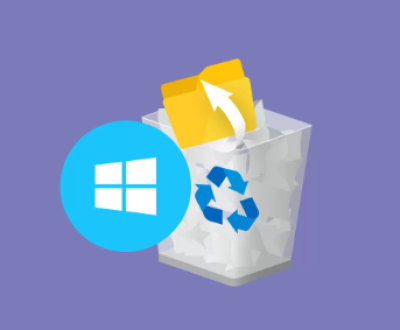When it comes to data loss, it can feel like an overwhelming and stressful experience. Whether it’s due to hardware failure, accidental deletion, or corruption, the loss of important data can have significant consequences for both personal and professional life. This is where data recovery services come into play, offering a glimmer of hope in times of uncertainty. Virginia, a state known for its rich history and growing tech presence, is home to several data recovery services that specialize in rescuing lost data from hard drives, SSDs, flash drives, RAID arrays, and more.
1. Data Recovery: What Is It and How Does It Work?
Before diving into the specifics of data recovery services in Virginia, it’s important to understand what data recovery is and how the process works.

Data recovery is the process of retrieving lost, deleted, or inaccessible data from damaged, corrupted, or malfunctioning storage devices. This could include hard drives, solid-state drives (SSDs), RAID arrays, flash drives, memory cards, and more. Data loss can occur for various reasons, including:
Physical damage: A hard drive or storage device could be physically damaged due to an accident, like a fall or spill.
Logical failure: This refers to issues related to the software or file system that prevent access to the data.
Human error: Accidental deletion or formatting of a drive can result in lost data.
Corruption: File corruption caused by power surges, improper shutdowns, or software malfunctions can make data inaccessible.
The recovery process typically involves diagnosing the issue, retrieving the data, and then restoring it to a new, functioning device. However, the methods and techniques used in data recovery can vary depending on the type of failure.
2. Types of Data Recovery Services in Virginia
Virginia is home to a variety of data recovery providers, ranging from large, nationwide companies to smaller, local businesses. These services can be categorized based on the type of storage device, data loss scenario, and the level of expertise required to recover the data. Below are some of the most common types of data recovery services available in Virginia:
2.1 Hard Drive Recovery
Hard drives (HDDs) are one of the most common storage devices that people use for personal and business data. If your hard drive fails, data recovery services can help retrieve your lost data. There are two types of failures that can occur with hard drives:
Mechanical failure: The drive’s moving parts are damaged, making it difficult or impossible for the drive to function.
Logical failure: The drive may still be physically intact, but the file system has been corrupted, rendering the data inaccessible.
Data recovery services in Virginia typically have specialized tools and cleanroom environments to open the drive and recover the data from damaged parts.
2.2 SSD Recovery
Solid-state drives (SSDs) are becoming increasingly popular due to their speed and durability. However, SSDs are more complex than traditional hard drives, and data recovery from SSDs can be more challenging. In the event of an SSD failure, it may be due to:
Wear and tear: SSDs have a limited number of write cycles, and excessive use can lead to data loss.
Controller failure: A malfunctioning controller can prevent access to data stored on the SSD.
Firmware corruption: SSDs rely on firmware to function, and if the firmware is corrupted, the drive may become inaccessible.
Since SSDs don’t have moving parts, data recovery typically requires advanced techniques to retrieve data from NAND chips and other components.
2.3 RAID Recovery
RAID (Redundant Array of Independent Disks) systems are commonly used for storing large amounts of data and are often employed by businesses to safeguard against data loss. However, RAID arrays can fail in several ways, such as:
Drive failure: If one or more drives in the RAID array fail, data may become inaccessible.
RAID array corruption: Incorrect RAID configurations or corruption of RAID metadata can render the array unusable.
Controller failure: RAID controllers can fail, leading to data inaccessibility.
RAID recovery is a specialized field that requires expertise in rebuilding RAID arrays and recovering data from multiple disks. Many data recovery providers in Virginia have dedicated RAID recovery services to address these complex issues.
2.4 Flash Drive and Memory Card Recovery
Flash drives and memory cards are commonly used for storing personal data, photos, videos, and documents. Data loss from these devices can occur due to:
Accidental deletion or formatting: Users often accidentally delete files or format the device, leading to data loss.
Physical damage: Flash drives and memory cards are susceptible to damage from drops, spills, or exposure to extreme temperatures.
Corruption: Power surges or improper ejection can cause file corruption, making the data inaccessible.
Data recovery services in Virginia can help recover files from these types of storage devices using specialized software and hardware tools.
2.5 Data Recovery for Mobile Devices
With smartphones and tablets storing increasing amounts of personal and business data, mobile device data recovery has become an essential service. Whether it’s a crashed phone or a damaged SD card, data recovery services can help retrieve:
Photos and videos
Contacts and messages
App data and documents
Mobile device data recovery can be tricky, but experienced technicians in Virginia can use advanced techniques to recover your data from broken screens, water damage, or software malfunctions.
3. The Data Recovery Process
Now that we’ve covered the different types of data recovery services, let’s walk through the typical data recovery process. Understanding the process can help you know what to expect when you send your device to a recovery service.
3.1 Initial Consultation
When you first contact a data recovery provider in Virginia, the company will likely ask you about the symptoms of the issue you’re experiencing. You may be asked questions like:
How did the data loss occur?
What type of device are you using?
Have you attempted any DIY recovery methods?
Based on this initial consultation, the company may be able to provide an estimated price and timeline for the recovery process.
3.2 Evaluation and Diagnosis
Once you send your device to the data recovery service, technicians will conduct a detailed evaluation to determine the extent of the damage and the best recovery approach. For example, if it’s a hard drive with mechanical failure, the technician may open the drive in a cleanroom environment to inspect the internal components.
3.3 Data Recovery Process
Once the evaluation is complete, the data recovery service will begin the recovery process. This may involve:
Repairing damaged components
Using specialized software to recover lost files
Rebuilding RAID arrays
Accessing raw data from chips on an SSD or flash drive
The goal is to retrieve as much data as possible, even if some files are corrupted or inaccessible.
3.4 Data Transfer
After the data has been recovered, it will be transferred to a new, functioning storage device, such as a new hard drive, SSD, or external drive. The recovered data will be returned to you, usually in a secure and organized format.
4. Choosing the Right Data Recovery Service in Virginia
Selecting a reliable data recovery service in Virginia can make a significant difference in the success of your recovery efforts. Here are some factors to consider when choosing a service:
4.1 Expertise and Reputation
Look for a data recovery service with a proven track record and expertise in recovering data from the specific type of device you’re using. Check reviews, testimonials, and case studies to ensure the company is reliable.
4.2 Cleanroom Facilities
For physical damage, data recovery may require a cleanroom environment to prevent further damage to the device. Make sure the company has a certified cleanroom for opening hard drives and performing recovery tasks.
4.3 Turnaround Time
The time it takes to recover your data can vary depending on the severity of the damage and the type of device. Inquire about estimated turnaround times before committing to a service.
4.4 Pricing and Transparency
While some data recovery services may offer a free diagnostic, ensure that the provider is transparent about their pricing. Avoid services that advertise extremely low prices, as they may use subpar methods or fail to deliver on recovery results.
4.5 Customer Support
Good customer service is essential when dealing with data recovery. Choose a provider that offers clear communication, detailed progress updates, and customer support throughout the process.
5. Top Data Recovery Services in Virginia
Here are some reputable data recovery services you can consider in Virginia:
Secure Data Recovery Services: With locations in Virginia, Secure Data Recovery is known for its expert services in data recovery for both personal and enterprise clients. They specialize in hard drive, RAID, and SSD recovery.
DataTech Labs: Based in Virginia, DataTech Labs offers professional data recovery services for all types of storage devices, including mobile phones, flash drives, and NAS systems.
Virginia Data Recovery: A local Virginia service provider with expertise in recovering data from hard drives, RAID arrays, and SSDs, with a focus on personal and small business clients.
DRS Data Recovery: Specializing in both data recovery and data forensics, DRS offers comprehensive recovery solutions for customers across Virginia.
About us and this blog
Panda Assistant is built on the latest data recovery algorithms, ensuring that no file is too damaged, too lost, or too corrupted to be recovered.
Request a free quote
We believe that data recovery shouldn’t be a daunting task. That’s why we’ve designed Panda Assistant to be as easy to use as it is powerful. With a few clicks, you can initiate a scan, preview recoverable files, and restore your data all within a matter of minutes.

 Try lt Free
Try lt Free Recovery success rate of up to
Recovery success rate of up to









